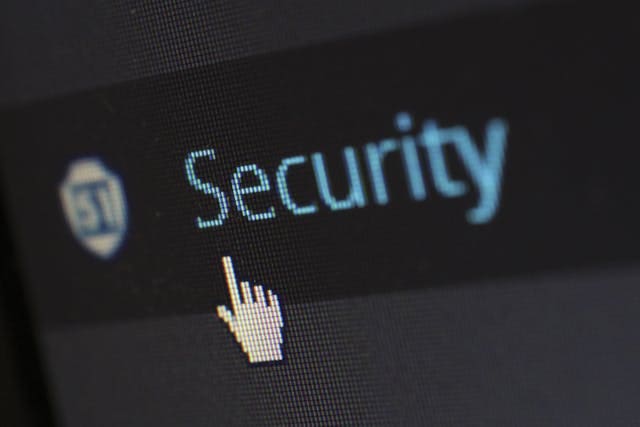In today’s digital world, privacy is a growing concern. Many people assume that iPhones are nearly impossible to hack, but spyware and monitoring apps have become more advanced, allowing others to track an iPhone’s activity without the owner’s knowledge. Whether it’s a cybercriminal, a jealous partner, or even well-intentioned parents, spyware can compromise personal data and security.
If you suspect that your iPhone has been compromised, here are the key signs to look out for.
Legal Use Cases of Spy Apps
While the idea of spyware often carries negative connotations, there are legal and ethical reasons why and how to spy on iPhone activities. Parents, for example, use monitoring apps to ensure their children’s online safety, track their location, and protect them from cyber threats. These tools can help prevent exposure to inappropriate content, online predators, and cyberbullying.
Similarly, monitoring apps can be used to assist in caring for elderly family members. Many elderly individuals suffer from memory issues or medical conditions that put them at risk when alone. Using a monitoring app, caregivers can check on their loved ones, track their location if they wander, and receive alerts if they are in distress. These applications provide peace of mind for families while respecting privacy boundaries.
Employers also use monitoring software to track company-issued devices. This is done to prevent data leaks, ensure productivity, and protect corporate assets. However, laws regarding employee monitoring vary, so businesses must inform employees and obtain consent when using such tools.
Unusual Battery Drain
One of the most common indicators of spyware on an iPhone is excessive battery drain. Spy apps run in the background, constantly collecting and transmitting data, which can cause the battery to deplete much faster than usual. If your phone suddenly loses power quicker than before, it could be a sign that spyware is at work.
Overheating Without Heavy Usage
iPhones heat up when running intensive apps like games or video streaming. However, if your device is overheating even when idle or performing light tasks, it could indicate a hidden app running in the background. Many spy applications continuously send data to remote servers, causing excessive CPU usage and overheating.
Strange Background Noises During Calls
Hearing unusual static, clicking sounds, or echoes during phone calls might be a red flag. Some spyware apps allow eavesdropping on live conversations, and these background noises could be caused by unauthorized call recording or interception. While occasional glitches happen, persistent disruptions might suggest that someone is spying on your calls.
Increased Data Usage
Spyware apps need to send collected information—like call logs, messages, and location data—to an external source. If your iPhone’s data usage spikes unexpectedly, despite no change in your browsing habits, it could be due to a spy app transmitting information in the background. You can check data usage in Settings > Cellular to identify any suspicious apps.
Unfamiliar Apps or Configuration Profiles
If you notice apps on your iPhone that you don’t remember installing, it’s a strong indication of spyware. Some spy tools disguise themselves with generic names or hide within system settings. Additionally, some spyware requires a configuration profile to operate. To check for unauthorized profiles, go to Settings > General > VPN & Device Management and review any unknown entries.
Random Reboots or Slow Performance
An iPhone infected with spyware may behave erratically, such as restarting randomly or running significantly slower than usual. Since spyware consumes system resources, it can cause lagging, freezing, or apps crashing unexpectedly. If you experience frequent slowdowns with no apparent cause, spyware might be to blame.
Frequent Pop-Ups or Redirects
Spyware may also cause frequent pop-ups or redirect your browser to suspicious websites. If your Safari browser suddenly starts displaying intrusive ads, redirects, or new toolbars appear without your consent, spyware could be involved. Resetting your browser settings may help remove unwanted changes.
Delayed or Failed Shutdowns
If your iPhone takes longer than usual to turn off or fails to shut down completely, it could indicate a monitoring app preventing the device from fully powering down. This happens because some spyware tries to keep running at all times to continue collecting data.
How to Check for and Remove Spyware
If you suspect that your iPhone is compromised, here are some steps to check for and remove spyware:
- Restart in Safe Mode: While iPhones don’t have a traditional safe mode, rebooting the device can temporarily stop some spyware processes.
- Check Installed Apps: Go through your apps and remove anything unfamiliar or suspicious.
- Review Configuration Profiles: Delete any unauthorized profiles under Settings > General > VPN & Device Management.
- Update iOS: Apple frequently releases security updates to patch vulnerabilities exploited by spyware.
- Reset to Factory Settings: If you can’t remove spyware manually, performing a factory reset (Settings > General > Transfer or Reset iPhone > Erase All Content and Settings) is the most effective solution.
Spyware on an iPhone is a serious privacy threat, whether installed by hackers, jealous partners, or even concerned family members. While parents and caregivers can legally use monitoring apps for children and elderly individuals, unauthorized tracking is a violation of privacy. If you notice any unusual signs on your device, taking immediate action can help you regain control of your digital security.
The New Jersey Digest is a new jersey magazine that has chronicled daily life in the Garden State for over 10 years.
- Staffhttps://thedigestonline.com/author/thedigeststaff/
- Staffhttps://thedigestonline.com/author/thedigeststaff/
- Staffhttps://thedigestonline.com/author/thedigeststaff/
- Staffhttps://thedigestonline.com/author/thedigeststaff/


